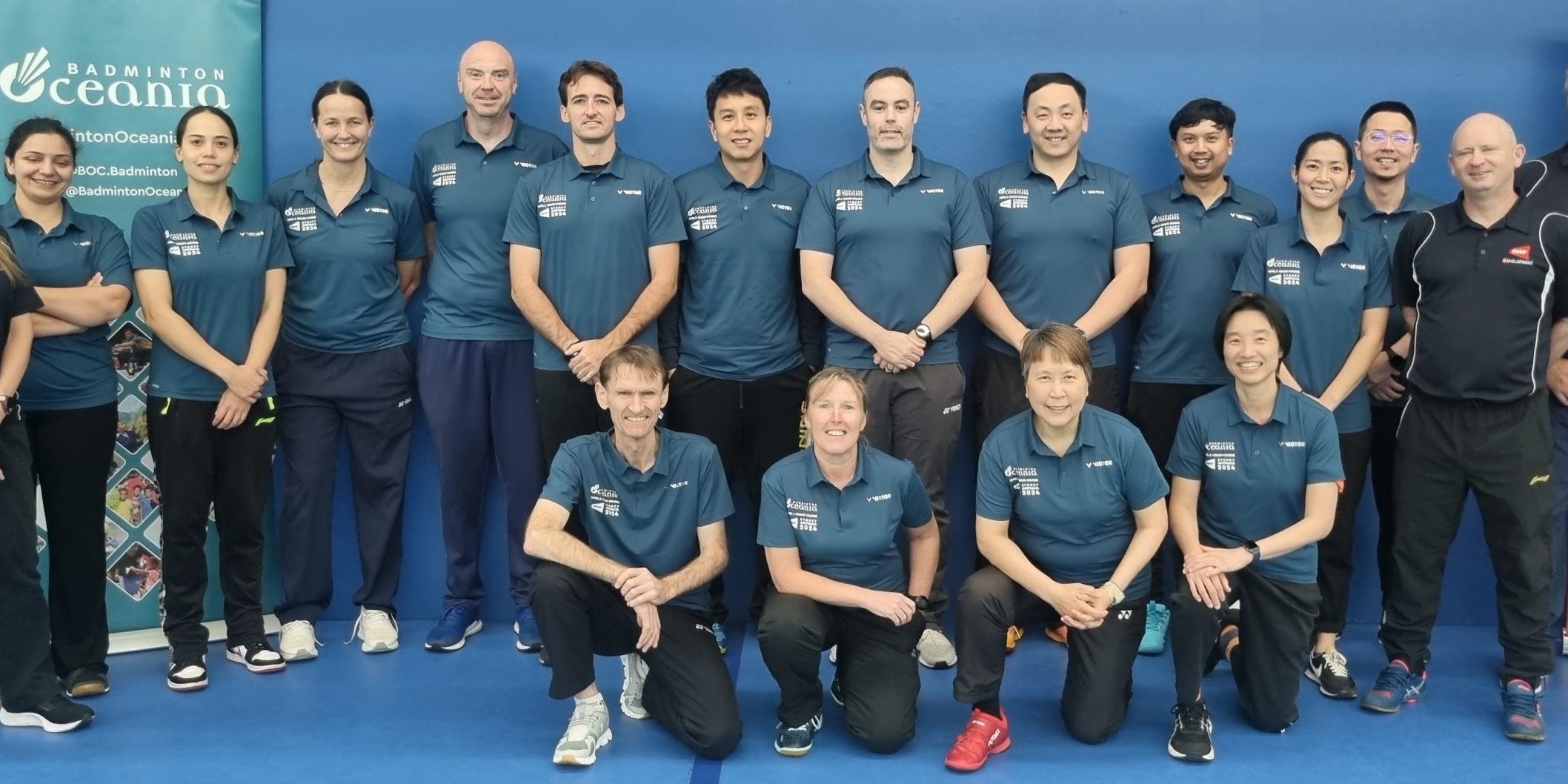The first Badminton World Federation (BWF) Level 3 Coach course in the Oceania region was recently held in Sydney, Australia. 14 invited coaches from Australia, New Zealand, Tahiti, South Africa, and Singapore took part. Having a broader reach than the Level 1 & 2 courses, this course covered concepts such as talent pathways, coaching systems, the nature of coaching elite players and understanding the many elements that go into creating world-class athletes.
Tutors Martin Andrew, Kenneth Larson, Behnaz Pirzamanbein and BWF Head of Educational Programmes Sharon Springer took the coaches through their paces during the six-day course, challenging them to view themselves from the outside, to consider what they do when they are coaching and to constantly reflect on what that are providing for their players.
“Encouraging coaches to find a better way to coach players, creating stronger learning environments and giving players more autonomy to have greater engagement in their training by asking effective questions” is just one take-away that the coach participants were encouraged to consider said Martin Andrew. Working in small groups, the coaches prepared session plans and presentations as well as putting learning sessions in practical scenarios.
Sharon Springer commented “the different perspectives that the participants offer enriches everyone’s understanding of the content and enables the rich discussion that is essential at this level. This provides the context for them to challenge the ideas they came in with, whether this means shifting their perspectives or simply gaining a deeper understanding of why they do what they do.” A key factor in this Level 3 course is to teach the coaches “how to create a more optimal learning environment for their athletes”.
Participant feedback was extremely positive reflecting on the concept of being challenged as a coach. Brent Miller, National Performance Manager for Badminton Australia emphasised “we all work inside of what we see as best practice however often we accept best practice at face value. The course challenged these ideas and provoked us to question our current practices”.
New Zealand’s Coaching Development Manager, Tracey Hallam had some beneficial learnings particularly regarding on court coaching which included “planning a session with the technical or tactical goal of what you want to achieve and then seeing where and how you can slot in some of the concepts and theories in the course so that the players are more competent when they finish the session. “I feel I have a clearer idea of how I need to structure sessions to help the players learn to make choices and reflect on the choices they have made. Whether that be a positive or negative decision it should create reflection.”
“As coaches we need to ask our players questions and create an inquisitive environment so that our athletes are constantly self-developing” commented Panuga Riou (AUS). “It is vital for us as coaches to provide training where the players are able to reflect on their choice of shots and the reasons behind it.”
Talent development pathways and more reflection during and after coaching sessions is something that participant Ritchie Marr (NZL) has taken away from his time at the course. “I must challenge my perceptions everyday with questions directed to me, more often than I question my players.”
BOC Coaching and Development Manager Robbie Thackham summarised the course as “learning new and different ways of doing things as coaches, trying different approaches, and constantly challenging themselves as coaches was a key aspect of this BWF Level 3 course which will undoubtedly transfer into us having higher quality coaches in our region to further develop our players to compete on the world stage”






